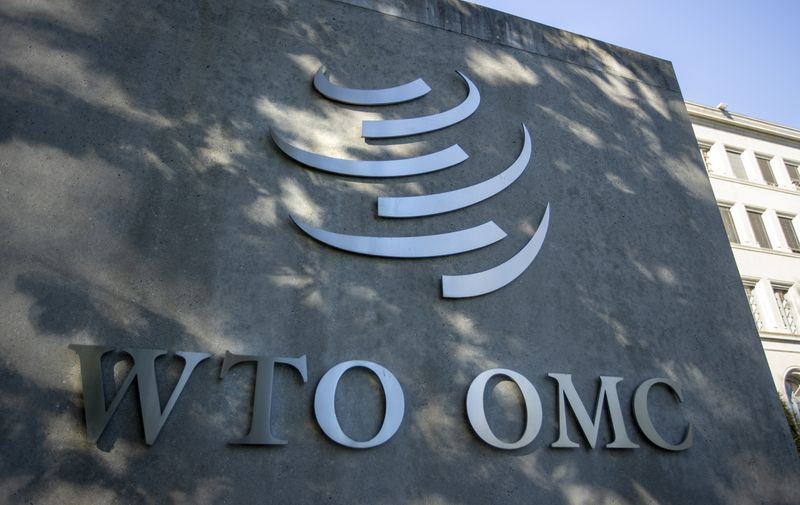By Emma Farge
GENEVA (Reuters) - Ministers from across the globe are convening for a World Trade Organization meeting in Abu Dhabi between Feb 26.-29 to try to broker deals, including on reforming its hobbled dispute system and cutting fishing subsidies.
The high-level meeting which takes place every two years, comes amid growing disregard for trade rules as the 29-year-old body grapples with global geo-political problems and the risk of world trade breaking up.
Here is an overview of the main topics:
REFORM
The WTO is trying to finalise a package of reforms to address the way it adjudicates trade disputes.
Its top court has been mothballed for four years due to U.S. opposition to new judge appointments, leaving trade disputes worth billions of dollars unresolved.
A draft proposal is seen as the last chance for the WTO to fix the system but has yet to make any mention of how to reboot the court due to a lack of consensus, leading India and China to voice concerns.
A U.S. delegate said in a Jan. 26 meeting that "difficult issues" remained such as what it considers WTO judicial overreach.
Currently, countries can still file complaints to a lower body but if they do not accept its findings, the case ends up in legal limbo where some 30 unresolved appeals now sit.
FISHING
Environmentalists say knocking out billions of dollars in subsidies that promote unsustainable fishing is the single most important thing states can do to help reverse declining stocks.
Countries clinched a deal at the last ministerial meeting in Geneva in 2022 on banning some subsidies including for illegal fishing and high seas stocks.
But negotiators arguably left the most thorny issues on subsidies - those that contribute to overcapacity and overfishing - unresolved.
One outstanding challenge is to determine exactly who is bound by toughest rules as part of a two-tier system.
Many, like India, are lobbying for carve-outs using WTO rules that allow special treatment for developing members. Another outstanding question is whether China, the world's biggest subsidiser, will seek this treatment.
More than 200 scientists have urged negotiators to complete the talks which began in the early 2000s.
WTO officials hope the first part of the agreement will gain the approval of two-thirds of the WTO's 164 members and come into effect in Abu Dhabi. So far, over half have signed up.
E-COMMERCE
WTO members do not currently agree on whether to extend a moratorium in place since 1998 on applying duties to electronic transmissions, with India and Indonesia among those opposed.
If no agreement is made, the moratorium would expire this year. Analysts say this could see countries introduce customs duties on items like film downloads in a move strongly opposed by business lobbies.
"It could really, really be a hamper on the growth of what is the fastest growing economic sector in many countries," said Alan Yanovich, Partner at Akin Gump Strauss.
AGRICULTURE
Ambassador Alparslan Acarsoy of Turkey, who chairs the talks, says that negotiating positions continue to "diverge widely" on many topics and even WTO officials concede that the best they think will come out is a future work plan.

The most heated exchanges have been around a push by India and a coalition of developing countries for a stand-alone permanent waiver to WTO rules that currently restrict domestic agriculture subsidies on food items like rice.
Critics from developed countries like the United States say that negotiations on this topic cannot be dealt with in isolation. Other topics include the sensitive issue of reducing domestic support to the farm sector and improving market access through applying peak tariffs or tariff rate quotas.